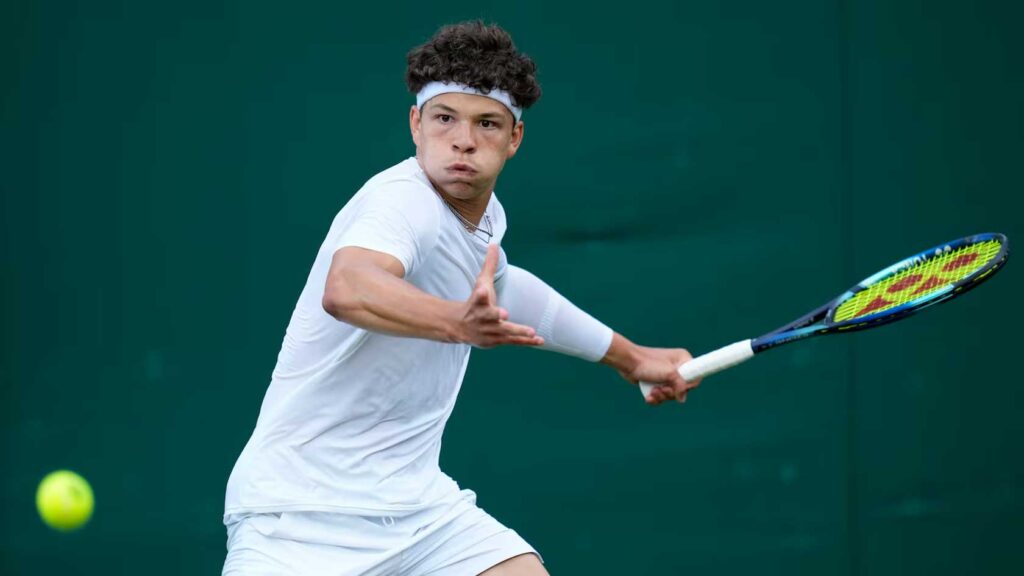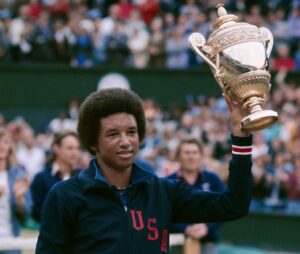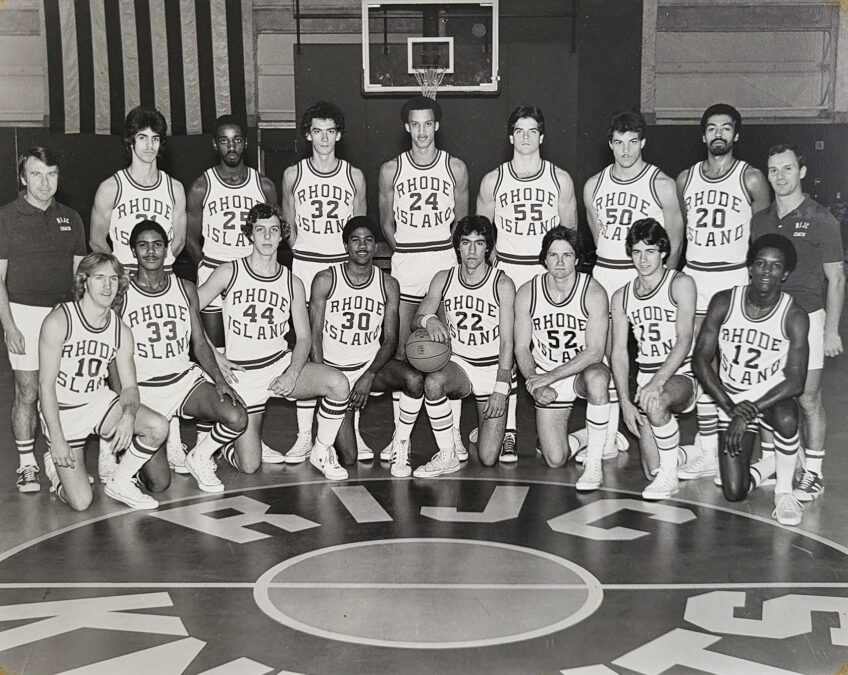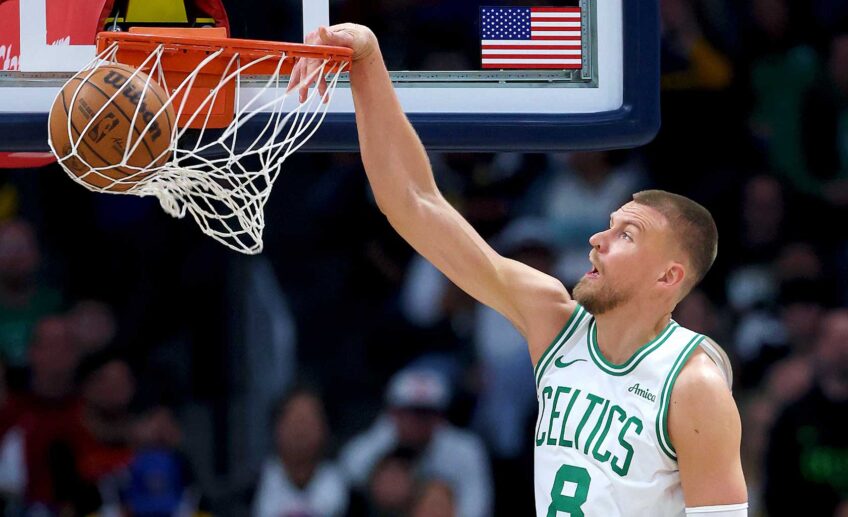
Banner Sports Sponsored by the Patriots Foundation
Twenty-two-year-old Ben Shelton remains the lone Black American male heading into the final week of competition at the 2025 Wimbledon Tennis Championships.
Shelton, the 10th seed in the men’s bracket, stepped into the pages of Wimbledon history, beating Lorenzo Sonego in four sets, 3-6, 6-1, 7-6, 7-5, to advance to his fourth career major quarterfinal and become the youngest American man to reach the Wimbledon quarters since Andy Roddick back in 2004.
The former Florida Gator will face the No. 1 seed, Jannik Sinner of Italy. Sinner is currently 5-1 against Shelton, most recently defeating him in the 2025 Australian Open semi-final. The young African American is aware of the history of Black Americans excelling at Wimbledon. He wants to someday place his name alongside that of Arthur Ashe — the only Black man to ever hoist the men’s singles championship trophy at Wimbledon, back in 1975, exactly 50 years ago.
Shelton has spoken on the Ashe legend since the day he became a professional. Mentioning the Hall of Famer, he said, “I know the legend of the [late] great Arthur Ashe and what it would mean to Black people for another Black man to win the singles title at Wimbledon. I want to be that man.”
Suppose Ben Shelton is to achieve that lofty goal. In that case, he will have to beat the likes of No. 1 seed Yannick Sinner and compete against possible opponents, No. 2 Carlos Alcaraz and No. 6 seed Novak Djokovic, three of the world’s top male tennis players remaining in the competition.
Shelton is at the beginning of what many people feel could be a great tennis career. However, he has yet to win a major title. This thought is not lost on the young man from Florida, whose father made it to the round of 16 at Wimbledon in 1994 and is the former tennis head coach at the University of Florida.

Ben Shelton hugs his father who coached him to an NCAA Title. PHOTO: PAIGE APKARIAN/UNIVERSITY OF FLORIDA ATHLETICS
Years ago, I interviewed Ashe the year before his victory and remembered his words: “I plan to make history by winning Wimbledon someday.” I also recall his signature fist pump following his winning point.
Over the last half-century, no Black man has matched Arthur Ashe’s feat.
On the women’s side of the net, there are no Black women left in the singles competition. Both Coco Gauff and Madison Keys, winners of the French and Australian Open tournaments this year, fell in the early rounds.
Serena Williams remains the last Black woman to be crowned the female singles champion of Wimbledon. And before she and her sister Venus began their dominant play at the championships, there was the legendary Althea Gibson, who won back-to-back Wimbledon women’s singles titles in 1957 and 1958, as well as the U.S. Open singles title in the same years. Arthur Ashe took a moment from his historic Wimbledon victory to say, “Althea Gibson paved the way for me and other Blacks to reach such a lofty goal as Wimbledon champion. I will forever honor her legacy.”
Several reasons have been given for the lack of success of Black male tennis players in the tennis world. Economics is at or near the top of the list of reasons young Black men choose other sports over tennis. First, tennis is an expensive sport to play. The development of a young player can take many years and requires substantial financial investment, leading many young Black men to pursue other sports.
Ben Shelton and the other Black men who play tennis at the professional level today are among the rare few who have been given the financial support to develop their skills. Francis Tiafoe, the 12th-ranked player in the world, who reached the quarterfinals at the French Open this year, grew up at a tennis facility in Maryland, where he honed his skills.
Shelton, the top player of the current class of Black players, carries the burden of expecting to be the next Arthur Ashe. Fair or not, that is what is expected of him and Tiafoe in the game today. There was only one Arthur Ashe. And it will be some time before anyone will approach his greatness.
For someone who witnessed that greatness up close and reported it to the world, I feel a sense of loss that is hard to measure. The achievements of Arthur Ashe spoiled many Black people of my generation.
While we dominated baseball, football and basketball, we did not truly understand Ashe until after his death. During his lifetime, he was a quiet, dignified man of great character who consistently displayed those qualities on the tennis court. I never saw him lose his cool, no matter what the situation, especially on the tennis court. He knew how to handle himself as a single Black male tennis player in a sport dominated by white players, many of whom exhibited bad behavior.
“My parents taught me how to act long before I ever picked up a tennis racket,” he said. “Tennis is a game. My character is who I am. The two are far apart in my order of life priorities, with character always taking the top position.”
Note to Black male tennis players: Arthur Ashe’s legacy will be a challenge to live up to.









Leave a Reply
You must be logged in to post a comment.